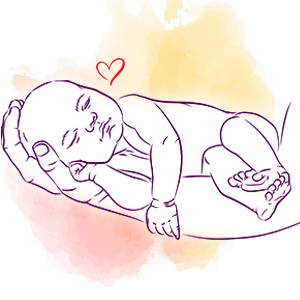In Vedic astrology, progeny prospects or childbirth
analysis involves a detailed evaluation of specific houses, planetary
positions, and other astrological factors in a natal chart. The primary focus
lies on the 5th house, which represents children, creativity, and
progeny. An astrologer examines the condition of this house, including the
planets placed in it, the aspects it receives, and the strength and placement
of its ruling lord. Additionally, the 2nd house, associated with
family and lineage, and the 9th house, representing fortune and
blessings, are analyzed to provide a broader context for progeny-related matters.
The 11th house, signifying the fulfillment of desires, is also
reviewed for insights into the likelihood of having children.
The planets play a crucial role in this
analysis. Jupiter, known as the karaka (significator) of children,
is vital for assessing progeny prospects. A strong and well-placed Jupiter
typically indicates good potential for children. Venus, associated
with fertility and reproduction, and the Moon, representing
emotions and nurturing capacity, are also considered. Conversely, malefic planets
like Saturn, Rahu, and Ketu, when
influencing the 5th house or its lord, may indicate delays, obstacles, or
karmic challenges related to childbirth.
The astrologer closely examines the 5th
house lord to determine its strength, placement, and associations.
Beneficial aspects or conjunctions enhance the prospects, while afflictions,
such as malefic planetary influences or unfavorable placements, may indicate
challenges. Furthermore, the D7 divisional chart (Saptamsha chart) is
specifically analyzed for matters related to children. This chart provides
deeper insights into the condition of the 5th house, its lord, and Jupiter’s
role in progeny matters.
Certain yogas, or planetary combinations, also
influence progeny prospects. For instance, Santana Yoga denotes
favorable conditions for having children. On the other hand, afflictive
combinations or doshas, such as the influence of Badhaka planets,
can signal delays or obstacles. In such cases, an astrologer might recommend
specific remedies to mitigate challenges. These remedies could include reciting
mantras, wearing gemstones, performing pujas, or engaging in charitable acts.
Timing is a critical aspect of progeny analysis.
The astrologer studies the individual’s current planetary periods (Dasha and
Antardasha) and transits to predict the most favorable periods for conception.
Beneficial periods often involve Jupiter, Venus, or the 5th house lord, while
malefic transits may signify delays or challenges. Additionally, the astrologer
considers the Navamsa chart (D9) to assess marital harmony, as
this indirectly impacts progeny prospects. Health indicators in the chart,
represented by the 6th house (health challenges) and the 8th
house (chronic issues), are also reviewed to identify any potential
fertility concerns.





















